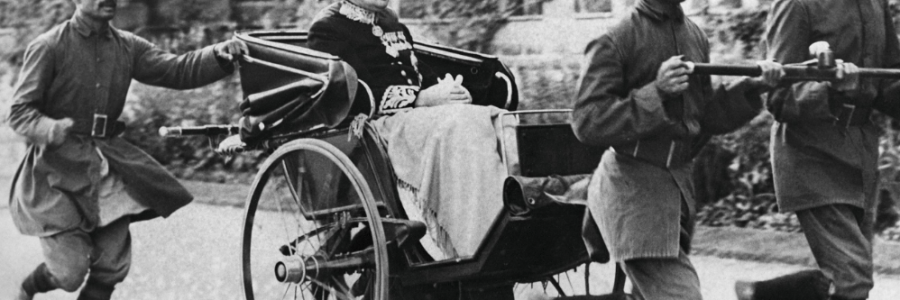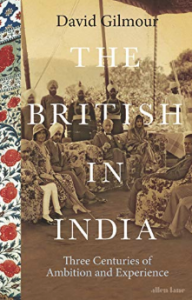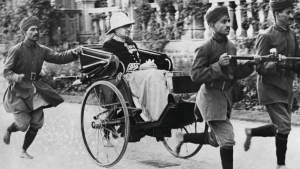
Economic looting of once wealthy and civilisation


The British lived in India after the reign of Elizabeth I until well into the reign of Elizabeth II, and the men and women to risk their lives on long voyages down the Atlantic and across the Indian ocean. David Gilmour amazed by his research said “One of the most surprising things I learnt was how small, was the number of British people who lived in India. At the end of the nineteenth century millions of Britons emigrated to Australia, New Zealand, Canada, South Africa and the United States, but in India, the British population was never more than 155, 000, about the size of the population of Nottingham at the time. And most of those did not choose to go there”.
“What did the British do after 71 years on Since the Union flag came down on the Indian sub-continent”, David Gilmour debates whether the Raj plundered and pillaged India or left lasting good, especially after the parting of ways between India and Britain.
He focuses on the human aspects of British life in India over three centuries, detailing how the civilians and soldiers, memsahibs and missionaries, planters, box wallahs, pig-stickers and prostitutes lived, loved and died in a strange, faraway land.
He gives us a voice to the distant inhabitants of imposing government houses, out-of-bounds cantonments, mysterious bungalows and white-only clubs.
The India-wallahs braved long voyages, loneliness and diseases, followed different stars. Debt-laden profligates pursued to recover fortune and returned as East India Company nabob, ostentatious with wealth, self-exiles went eat to cure a broken heart or build new lives, went to save the souls of the heathens living in poverty, ignorance and darkness. Some followed the military or civilian career that promised a better life and comfortable retirement. Shipload went to service the Raj as tailors, hatters, Piano-tuners and undertakers.
Several “went native”; others stayed on and built lives as indigo or tea planters or oil jute and railwaymen, a thousand cemeteries across India mark those who never returned.
It took all sorts to run an empire including civilians on horseback in pitch helmets, administering the land, dispensing justice to peasants under a tree, building canals, fighting dacoits and tigers. Among the army men who spent their days in parades and drills, quenching beer waiting for action, less frequent after the 1857 mutiny.
Winston Churchill, a young lieutenant complained that his short stay in cavalry regiment was a “useless and unprofitable exile”, but he did manage to play a lot of polo and write books, although the Bangalore club still displays an unpaid bill of 13 Rupees against Churchill.
In the literary and artistic fields Thackeray, Kipling, Eric Blair (George Orwell), Vivien Leigh, singer Cliff Richard born as Harry Rodger Webb and Comedian Spike Milligan, whose mother reached the hospital in a bullock cart to deliver him, were born in India.
Mixed marriages made for better race relations and were widely prevalent in the early years when few Englishwomen travelled out to India. Company officer smoked hookahs, spoke local languages and lived with one or more Indian women or bibis. David Ochterlony, the resident of Delhi, a top company representative in the early 19th century had 13 bibis who accompanied him on separate elephants for his evening ride. This institution disappeared with changing of morality and the frequent voyages home through the Suez Canal and the arrival of more Englishwomen, including the “fishing fleet” who sailed east to catch a well-to-do husband. British society distanced itself from the people it ruled.
Life in the summer capital of Simla was exciting with Victorian society with its share of adulteries, crimes of passion, suicides and scandals. Young bachelors romanced the grass windows of men still toiling in the plains. A frustrated EM Forster while working as secretary to the Maharaja of Dewas in 1921, was given a palace barber and a disused suite.
But the ugly realities of colonial rule, the duplicity, greed and self-justification that fuelled the British political and racial domination of India or indeed the economic looting of a once wealthy civilisation. Tens of millions were dying in famines even as Viceroys organised glittering imperial durbars.
The British in India: Three Centuries of Ambition and Experience by David Gilmour, Allen Lane, £30, 640 pages.
